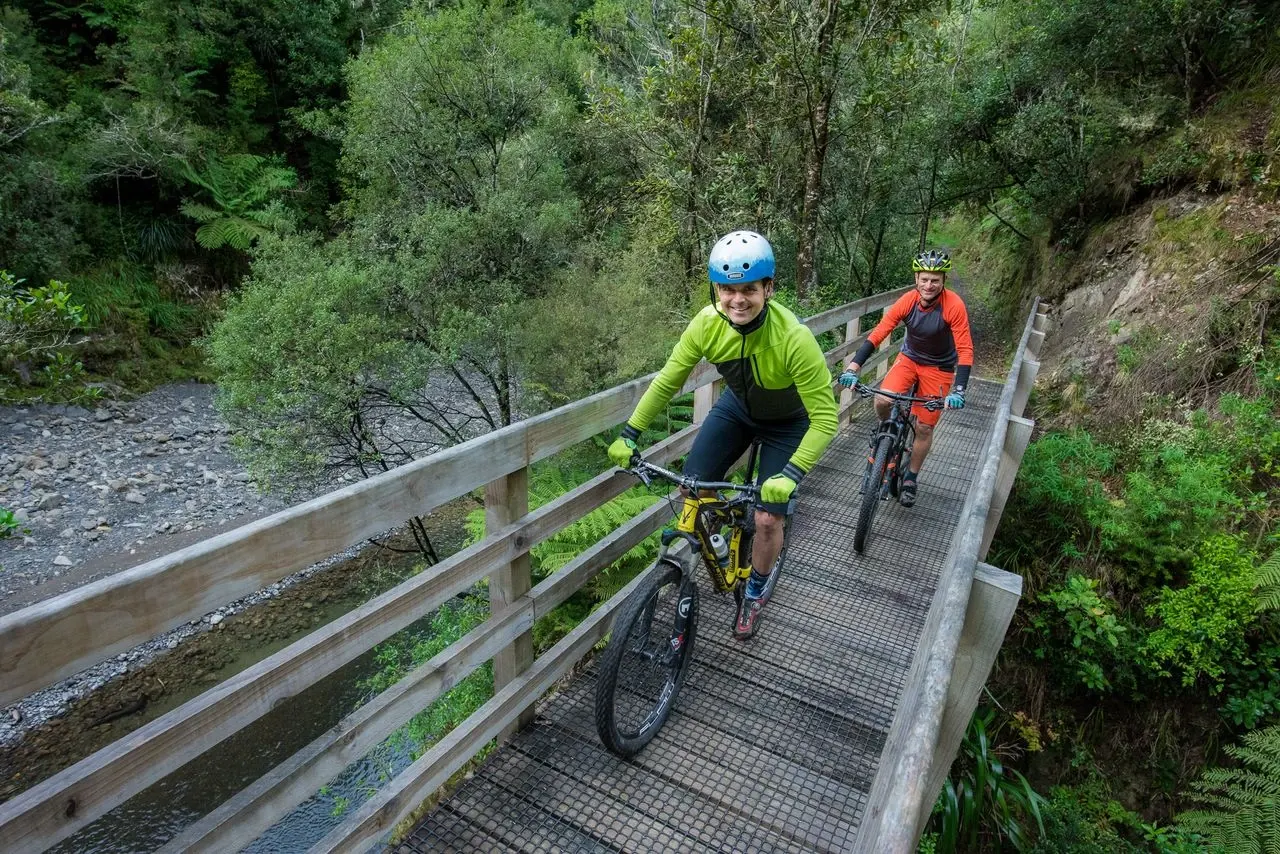Representatives from Cycle Gisborne, Tapuwae Tairāwhiti Trails and Motu Trails attended the North Island Great Rides Hui – Te Hui Tūhono in Cambridge this July.
Trust Tairāwhiti, as the Regional Tourism Organisation (RTO), supported local operators’ attendance to help strengthen local tourism capability. The operators returned inspired with fresh ideas to bring back to the region.
The event brought together trail organisations, operators, accommodation providers and tourism professionals from across Aotearoa to explore the future of cycle tourism. It focused on the value of collaboration, trail data, storytelling and proactively turning ideas into actions to grow the cycle tourism economy.
“We tend to work in silos, but this hui reminded us just how impactful working together can be,” said Lyall Evans from Tapuwae Tairāwhiti Trails.
Jim Robinson from Motu Trails highlighted national and regional collaboration in achieving ambitious goals.
“The government aims to see the economic benefit of cycle trails doubling to two billion dollars within the next decade. Achieving this requires collaboration across the board,” Jim said.
“By bettering our connections across the region and the North Island, the trails can bring greater benefit to Tairāwhiti and Ōpōtiki communities.”
Motu Trails recently installed a counter on the Coastal Waipaoa River Trail, recording 5,222 users since January. Another counter installed by Tapuwae Tairāwhiti Trails on the Oneroa walkway has shown valuable insights for events, including the Surf Lifesaving Nationals held at Midway Beach earlier this year.
“Sharing this data with council, community groups and operators supports effective planning, managing seasonal visitor peaks and advocating more powerfully for sector support,” said Lyall.
Anelia Evans from Cycle Gisborne discussed actively implementing commissionable products to create incentives for local businesses, an approach highlighted in the presentation by Riverside Adventures Waikato.
“Our trails don’t just attract visitors, they enrich our local communities and businesses, benefiting everyone from accommodation providers to hospitality businesses and enhancing regional wellbeing through improved health, fitness and mental health,” said Anelia.
“As we’ve seen in other regions, when you build the tracks, people will come. Extended cycleways attract visitors, boost local economies and are well-used by locals, with real benefits for physical and mental wellbeing.
“It’s about the experience, not just the bike. Visitors appreciate the unique stories, friendly people and authenticity here in Gisborne. The hui highlighted that there’s a real opportunity to share our rich culture, history and places, and we can definitely do that better to create a more meaningful visitor experience.”
Maintaining strong relationships with the RTO and local thought leaders is vital to the continued growth of cycle tourism in Tairāwhiti.
“All of the presenters spoke highly of the role RTOs play,” said Lyall.
“Regular collaboration and ongoing catch-ups with the RTO are essential, especially given current challenges in the industry. Staying connected will help ensure the sustainable growth of trails and tourism in Tairāwhiti.”

